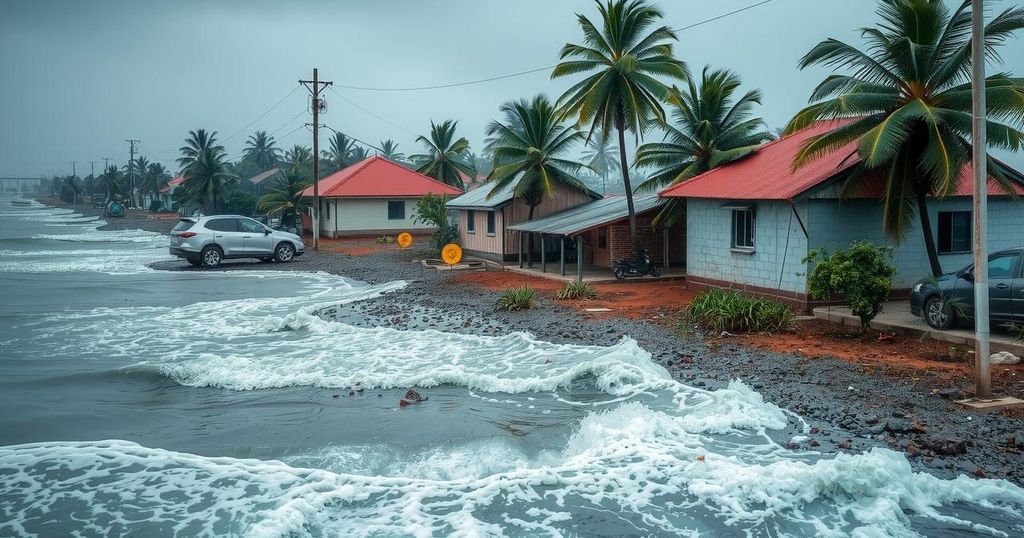Mozambique’s Humanitarian Crisis: The Impact of Food Insecurity and Cyclone Chido
Mozambique is currently experiencing a severe humanitarian crisis with 3.3 million people facing acute food insecurity, exacerbated by conflict, disease outbreaks, and the aftermath of Tropical Cyclone Chido. The cyclone, which occurred on December 15, 2024, resulted in numerous casualties and further displaced populations, highlighting the urgency for humanitarian assistance.
Mozambique is currently grappling with a multifaceted crisis that has left 3.3 million individuals facing acute food insecurity from November to February 2025. According to the Integrated Food Security Phase Classification (IPC) report of August 2024, this dire situation is compounded by internal displacements, with 717,000 individuals being classified as internally displaced persons (IDPs) as reported by the International Organization for Migration (IOM) in June 2024. The northern region of Mozambique has been particularly affected by conflict and the recent Tropical Cyclone Chido, which struck on December 15, resulting in at least 73 fatalities and displacing 329,500 people in need of urgent assistance.
The situation has become increasingly critical, as ongoing violence from non-state armed groups (NSAG) has led to heightened protection concerns and impediments to humanitarian access, especially in Cabo Delgado Province, as noted by the United Nations in recent assessments. The need for humanitarian assistance has surged with 2.3 million people now classified as in need, according to a UN report from January 2024. Additionally, it is estimated that around 10% of Mozambique’s population will endure levels of acute food insecurity classified as Crisis—IPC 3—during the impending lean season, largely due to the early depletion of food stocks following below-average harvests, as reported by the Famine Early Warning Systems Network (FEWS NET).
The current humanitarian landscape in Mozambique is dire, heavily influenced by both natural disasters and persistent insecurity. In a country where the effects of climate change are acutely felt, the arrival of Tropical Cyclone Chido has not only resulted in immediate loss of life but has also exacerbated ongoing issues related to food security and internal displacement. The intertwined effects of prolonged conflict, displacement, disease outbreaks, and climatic shocks create an urgent need for comprehensive assistance to mitigate the severe humanitarian needs of millions of Mozambicans. These conditions underscore the critical nature of the response strategies being developed by various humanitarian organizations.
In conclusion, Mozambique faces a complex emergency marked by acute food insecurity affecting millions, widespread internal displacement due to conflict, and the devastating impact of Tropical Cyclone Chido. The interplay of ongoing violence and environmental disasters necessitates an urgent and coordinated humanitarian response to alleviate the suffering of those affected and to ensure their protection. As the situation evolves, it is imperative that the international community remains engaged and responsive to the needs of the vulnerable populations in Mozambique.
Original Source: reliefweb.int




Post Comment